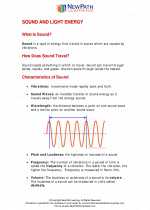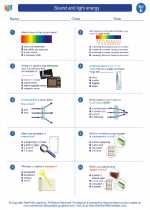What is Dark Energy?
Dark energy is a theoretical form of energy that is thought to make up about 68% of the universe. It is distinct from both ordinary matter and dark matter, and its existence was inferred from observations of the expansion rate of the universe. Unlike gravity, which tends to pull things together, dark energy seems to be causing the universe to expand at an accelerating rate.
Discovering Dark Energy
The existence of dark energy was first inferred from observations of distant supernovae in the late 1990s. These observations suggested that the expansion of the universe was not slowing down as expected, but rather was speeding up. This led to the idea that a mysterious force, now known as dark energy, was counteracting the effects of gravity and driving the accelerated expansion.
Role in the Universe
Dark energy is thought to be the dominant component of the universe's energy density, but its nature is not well understood. Its presence has significant implications for the ultimate fate of the universe. If dark energy continues to drive the acceleration of the universe's expansion, it is believed that galaxies will eventually move so far apart that they will no longer be visible from one another, leading to a "Big Freeze" scenario.
Studying Dark Energy
Scientists are actively studying dark energy through a variety of techniques, including observations of supernovae, measurements of the cosmic microwave background radiation, and large-scale galaxy surveys. These efforts aim to better understand the nature of dark energy and its role in the evolution of the universe.
Study Guide: Key Points
- Nature of Dark Energy: Dark energy is a hypothetical form of energy that is believed to be responsible for the accelerated expansion of the universe.
- Discovery: Dark energy was first inferred from observations of distant supernovae in the late 1990s, which suggested that the universe's expansion was accelerating.
- Role in the Universe: Dark energy is thought to be the dominant component of the universe's energy density and has implications for the ultimate fate of the universe.
- Studying Dark Energy: Scientists study dark energy through observations of supernovae, measurements of the cosmic microwave background radiation, and large-scale galaxy surveys.
◂Science Worksheets and Study Guides Fifth Grade. Sound and light energy

 Activity Lesson
Activity Lesson
 Worksheet/Answer key
Worksheet/Answer key
 Worksheet/Answer key
Worksheet/Answer key
 Worksheet/Answer key
Worksheet/Answer key
 Worksheet/Answer key
Worksheet/Answer key
 Vocabulary/Answer key
Vocabulary/Answer key
 Vocabulary/Answer key
Vocabulary/Answer key
